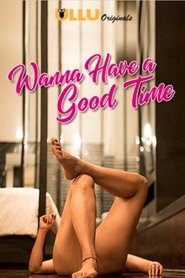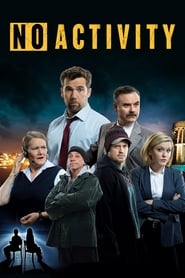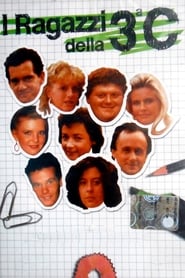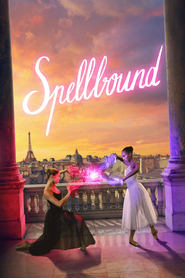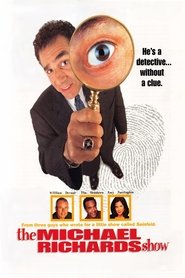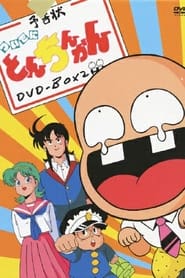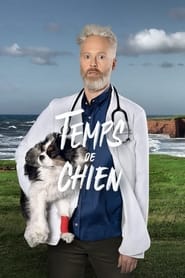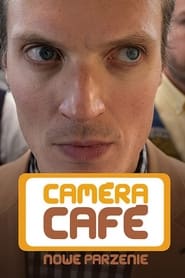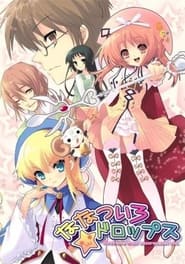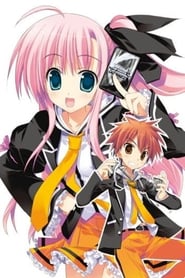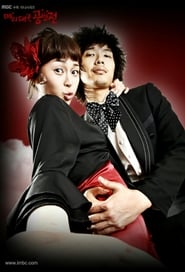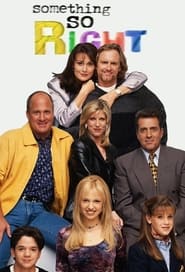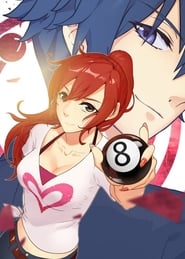Popular Comedy TV Series on Tub Tv - Page 475
-
Wanna Have A Good Time
2019
star 6.4Shilpa plans to go to her maternal home. In her absence, her husband calls for a prostitute. When he looks at her face, she just looks like his own wife. -
No Activity
2015
No Activity
2015
star 7.4The nightly exploits of our boys and girls in blue, and their shady criminal counterparts, through an unfolding kidnapping investigation. Truth is, being a cop or a crook is nowhere near as exciting as Hollywood would have us believe. Long nights with nothing to do but watch and wait, and spin a yarn or two... or, in the case of these over-caffeinated, sleep-deprived souls, share way too much information about themselves, opine on matters far beyond their qualifications, and discuss topics that most would agree are strictly NSFW. -
The boys of 3rd C
1987
The boys of 3rd C
1987
star 5.5Rome, late 1980s, Leopardi Classical High School. This is where the various protagonists of the series meet and experience the epic, hilarious exploits of their classmates in 3C, the most outgoing high school students of the entire school year. Bruno Sacchi, a shy, rather plump boy, often awkward but with a big heart. Chicco Lazzaretti, the classic, tireless repeater, obsessed with school and his classmates, always ready to answer teachers in funny ways to distract his classmates. Of course, Daniele and Rossella, typical sweethearts who have grown up together since childhood, are also present, along with the beautiful, blonde Sharon Zampetti, desired by everyone. -
Spellbound
2023
Spellbound
2023
star 8.1Cece Parker Jones' life is turned upside-down when she discovers she's a real witch. Magical mayhem ensues at the Paris Opera Ballet School when Cece begins to practice her spell work, making things harder to juggle as she balances new magical identity, dance, and simply being a teenager! Things get even more complicated when she accidentally summons her enemies, a group called the Mystics. -
Julia Zemiro's Home Delivery
2013
star 7Each week, Julia will invite one of Australia’s finest comics to take a trip down Memory Lane. And Memory Bus Route. And Memory Bike Path. Julia and her guest will make their way from the seat of childhood memories, the family home, through the surrounding neighbourhood and all the way to the school gate, reliving formative moments, talking about life, love and achievement, about the past, present and future. What Julia discovers about her guests will explain, well, almost everything. Time-travelling guests Carl Barron, Noeline Brown, John Safran, Alan Brough and Shane Jacobson will share with Julia where they stacked their first bike, stole their first kiss and learned the art of a withering comeback. -
The Michael Richards Show
2000
star 4.5The Michael Richards Show is a sitcom that debuted on NBC in 2000. The show starred Michael Richards as reality-challenged but successful private detective Vic Nardozza who gets the job done despite his unconventional methods. -
Tsuide ni Tonchinkan
1987
Tsuide ni Tonchinkan
1987
star 6A gang decides to play at burglary without the knowledge of their schoolmates, each masquerading at different times as the master thief Tonchinkan. -
The Faculty
1996
The Faculty
1996
Flynn Sullivan is a junior high vice-principal balancing the demands of her career with single motherhood. -
Temps de chien
2023
Temps de chien
2023
Antoine Meilleur is a veterinarian and star host of successful TV shows. He also owns a veterinary hospital and a veritable empire of animal products. But his whole world suddenly changes the day he is plunged into a scandal, despite himself. -
Nanatsu-iro Drops: First Love That Encompasses You
2007
star 8.5* Based on an adult visual novel by UNiSONSHIFT. What if, when watching the stars outside the window... What if, when writing in your secret diary at the end if the day... ...A mysterious light suddenly falls from the sky... Tsuwabuki Masaharu, or Haru as his friends like to call him, is your normal middle school student. Now in his second year, his friends push him to speak with his classmates whom he has yet to speak to, but this was still difficult for Haru due to his clumsy nature. One afternoon, his life met with a 180° turn during a strange encounter in the hallways of Hoshigaoka School. During that fateful encounter, he accidentally drank a magical potion which makes him transform into a stuffed animal sheep during the night! Haru later learns that in order to return to his original self, he needs to collect "star droplets" that fall from the sky. However, being that his innards are now made of cotton, he will need the help of a "special person." Little did he know that the special person was someo -
Buchou to Shachiku no Koi wa Modokashii
2022
star 7.5A love story between an office workaholic and the director of their company. -
Royal Johnson Medical
2011
star 6A humorous story of a sassy young girl He Tianxin who dresses up as a boy. Tianxin meets Emperor Zhu Li and Zhang Zhesan who they later become friends. Little by little both the Emperor and Zhesan have fallen love with Tianxin, creating a funny yet troubling love triangle. - My Bratty Princess Spinoff -
Weiss Survive
2009
Weiss Survive
2009
star 2Teenage boy Takeshi and girl Michi get lost in the Card Battle world and have to win card battles to return home. -
喜人奇妙夜·纯享
2024
喜人奇妙夜·纯享
2024
-
The Mary Daegu Bout
2007
The Mary Daegu Bout
2007
star 6.5Ji Hyun Woo basically comes out as 'Kang Dae Gu' a chivalry novelist who writes stories about martial arts, but he's in fact jobless. And before he became like this, he was a law student. But while he was preparing for his bar exam, he witnessed his lawyer friend commit suicide. After that incident, he threw away his hopes and dreams and became a writer. -
Something So Right
1996
Something So Right
1996
star 4.5Carly Davis, a twice-divorced party planner, marries Jack Farrell, a divorced English teacher. They had three children, one from each of their former marriages. -
If I'd kissed her
2021
If I'd kissed her
2021
star 4Nozomu Momochi works as a supermarket employee and lives without any dream and courage. He accidentally met his favorite manga creator, Tomoe Yuizuki and they became a couple. One day, a middle-aged man approaches Nozomu and calls himself Tomoe. -
CMFU Academy: King of Billiards
2019
star 10A troublesome girl Qin Xiao Lu separated from her parents as a child, making a living playing and cheating, until she became a highly qualified gangster. One day, Qin Xiao Lu blackmailed an owner of a BMW. I did not expect the owner to be a prince, the prince of the CMFU Academy. The two blame each other and together they go through a happy drama. -
MiniPato
2002
 Netflix
Netflix
 Amazon Prime Video
Amazon Prime Video
 Apple iTunes
Apple iTunes
 Apple TV Plus
Apple TV Plus
 Disney Plus
Disney Plus
 Google Play Movies
Google Play Movies
 Paramount Plus
Paramount Plus
 Hulu
Hulu
 HBO Max
HBO Max
 YouTube
YouTube
 fuboTV
fuboTV
 Peacock
Peacock
 Peacock Premium
Peacock Premium
 Amazon Video
Amazon Video
 The Roku Channel
The Roku Channel
 AMC+
AMC+
 Kocowa
Kocowa
 Hoopla
Hoopla
 The CW
The CW
 Vudu
Vudu
 Starz
Starz
 Showtime
Showtime
 PBS
PBS
 Pantaflix
Pantaflix
 FXNow
FXNow
 Tubi TV
Tubi TV
 Kanopy
Kanopy
 Comedy Central
Comedy Central
 Crunchyroll
Crunchyroll
 Microsoft Store
Microsoft Store
 Redbox
Redbox
 Sun Nxt
Sun Nxt
 ABC
ABC
 DIRECTV
DIRECTV
 Crackle
Crackle
 Fandor
Fandor
 Plex
Plex
